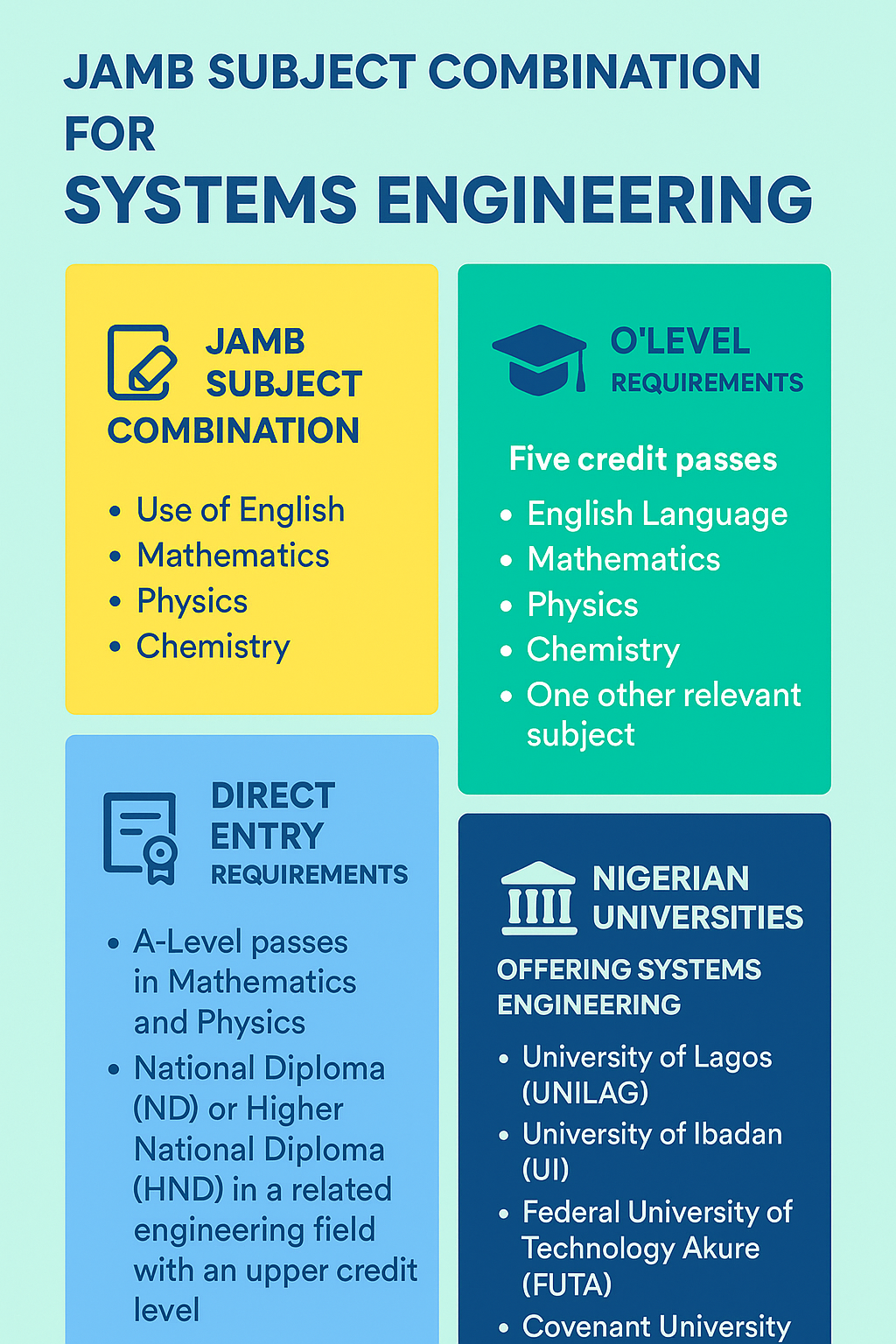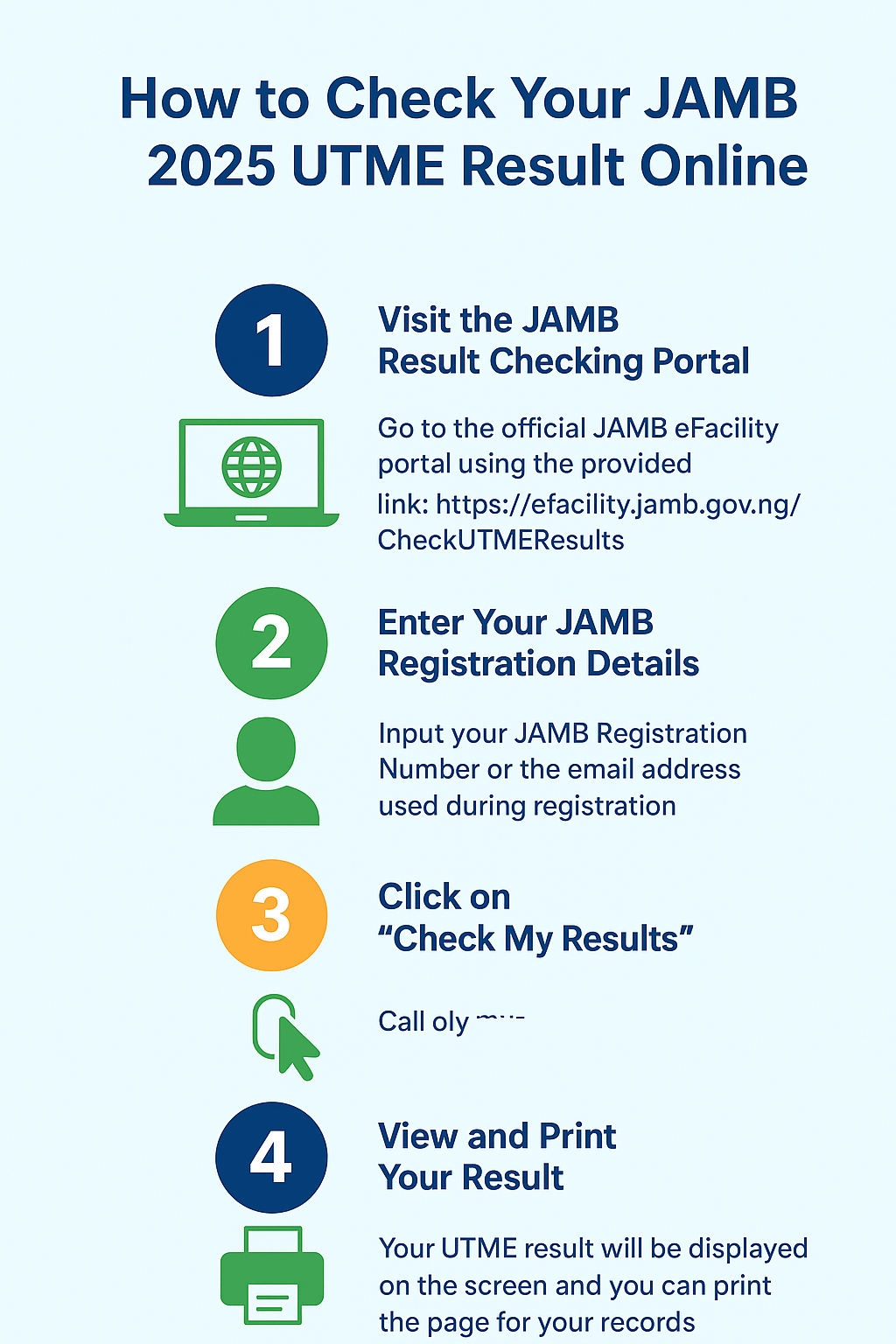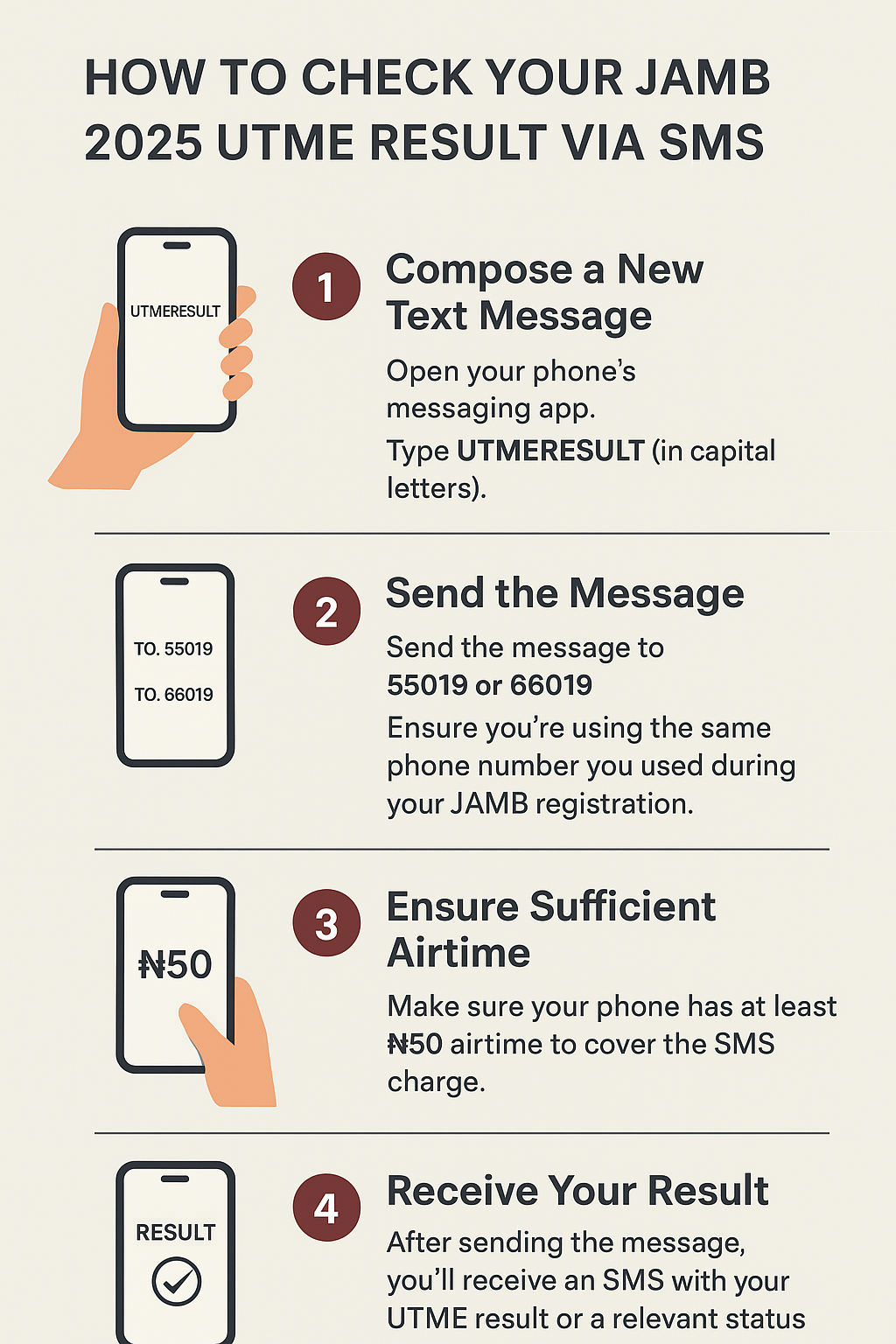Pursuing a degree in Systems Engineering is a great choice for students who love problem-solving and the integration of engineering with system management. To gain admission into Nigerian universities for the 2025/2026 session, you must understand the correct JAMB subject combination, O’Level requirements, and Direct Entry qualifications.
Contents
✅ JAMB Subject Combination for Systems Engineering
Candidates applying for Systems Engineering through UTME must take the following subjects:
| Subject | Why It’s Required |
|---|---|
| Use of English | Mandatory for all JAMB candidates |
| Mathematics | Core for problem-solving and engineering analysis |
| Physics | Vital for mechanics, electronics, and system design |
| Chemistry | Needed for materials, reactions, and applied sciences |
👉 Standard Combination: English + Mathematics + Physics + Chemistry
⚠️ Note: Some universities may accept a different science subject in place of Chemistry. Always check the admission page of your chosen school.
✅ O’Level Requirements (WAEC / NECO / GCE)
To qualify, you must have at least five (5) credit passes, including:
- English Language
- Mathematics
- Physics
- Chemistry
- One additional relevant subject (e.g., Further Mathematics, Technical Drawing, Biology, Agricultural Science)
👉 Results should not be from more than two sittings.
✅ Direct Entry Requirements
If you want to apply via Direct Entry, you need one of the following:
- A’Level passes in Mathematics and Physics
- National Diploma (ND) / Higher National Diploma (HND) in a relevant Engineering field, with Upper Credit or better
- JUPEB / IJMB results meeting the required grades
Successful candidates may be admitted into 200 or 300 level, depending on the university’s policy.
🎓 Nigerian Universities Offering Systems Engineering
Systems Engineering is not as common as other engineering courses, but it is offered in top institutions such as:
- University of Lagos (UNILAG) – Department of Systems Engineering
- University of Ibadan (UI) – related courses under Industrial & Systems Engineering
- Federal University of Technology Akure (FUTA) – Systems Engineering options in related departments
- Covenant University (Private) – Management and Systems-based engineering programs
👉 Always check the official website of your preferred university for updates on availability and requirements.
Why Systems Engineering?
Systems Engineering graduates are in demand in industries such as:
- Aerospace and Defense
- Oil and Gas
- IT and Telecommunications
- Manufacturing and Production
- Project and Operations Management
FAQs About Systems Engineering Admission
1. Can I replace Chemistry with Biology in JAMB for Systems Engineering?
No. Chemistry is required in most universities. A few schools may allow alternatives, but confirm from the JAMB brochure or school website.
2. What if I have two sittings in WAEC/NECO?
Most universities accept two sittings as long as the required subjects are covered with credit passes.
3. What is the cut-off mark for Systems Engineering?
Cut-off marks vary by school. For competitive universities like UNILAG, expect 200–250+ in JAMB. Always check departmental cut-offs after UTME results.
4. Which university is best for Systems Engineering in Nigeria?
UNILAG is the most recognized for Systems Engineering. Others may offer similar or related programs under “Industrial & Systems Engineering.”
5. Can I enter with ND or HND into Systems Engineering?
Yes, through Direct Entry, if your qualification is from a recognized institution and you meet the grade requirement.
Important Note
Admission requirements may change yearly. Always confirm details from the latest JAMB brochure or the official admission portal of your chosen university.
Starting a career in Systems Engineering requires careful planning. With the right JAMB subject combination (English, Mathematics, Physics, Chemistry), solid O’Level results, and awareness of Direct Entry pathways, you can secure admission into a reputable Nigerian university for the 2025/2026 academic session.
By preparing early and confirming the specific requirements of your chosen school, you’ll increase your chances of success.



